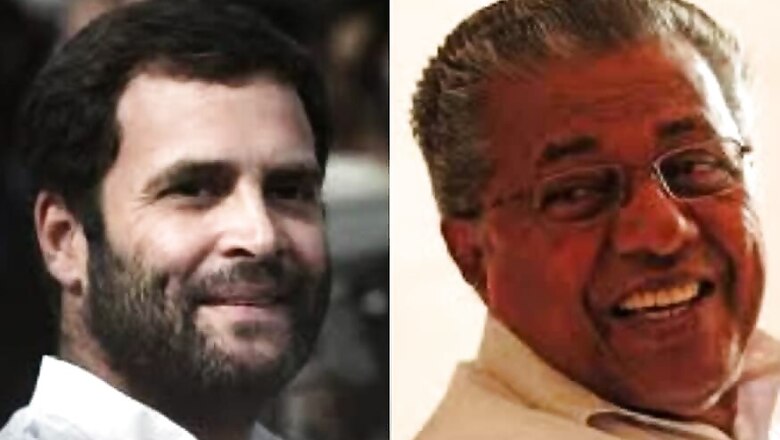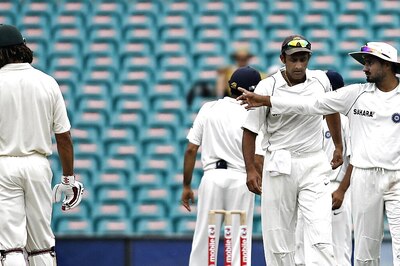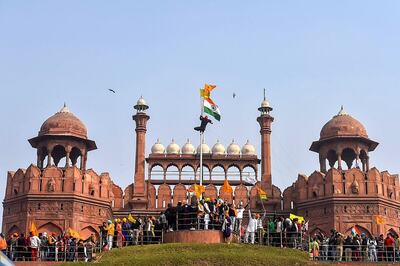
views
How political leaders react in the face of crisis decides the fate of nations for years to come.
For example, when the Great Depression ravaged the United States in the 1930s, President Franklin D Roosevelt introduced the New Deal to address the desperate need for reform and to accelerate the recovery rate from the economic collapse, which eventually led America into an era of prosperity by the 40s.
A contrasting instance is how President Thomas Woodrow Wilson handled the Spanish flu during the midterm polls of 1918 in the United States.
As local governments struggled to enforce social distancing norms and cancelled several public gatherings, closed theatres and parks, Wilson neither publicly acknowledged that a health crisis existed, nor made any effort to tackle it, which eventually resulted in 6,75,000 deaths in the United States alone.
Needless to say, Wilson did pay the price for it. He not only caught the flu a year later, but his party also lost both the chambers of Congress to the Republicans during the 1918 elections.
Circa 2020, politicians know better than to repeat Wilson's mistake. Although the American President, Donald Trump, did try to downplay the impact of coronavirus pandemic in the initial days, as it became clearer that there is no way of brushing aside a crisis of this magnitude, Trump along with most politicians and political parties across the world began to accept the pandemic as the next big poll agenda on which elections can be won or lost.
Several parties have already started rebranding their campaigns as well as the image of their leaders for the post-COVID-19 political landscape, using this crisis as an opportunity to adjust the fulcrum of their political ideology.
Closer home, the CPI(M)-led Kerala government as well as the Congress are making endeavours to revamp and prepare for a challenging new future, through ideological discussions, as well as political and economic discourse.
'Kerala Dialogue', a new online platform to discuss and debate global development amid the pandemic is one such endeavour that was launched on Thursday by Chief Minister Pinarayi Vijayan.
In his opening address, Vijayan said, “We now know that we will have to change for this new world (the post-pandemic era). Our priorities are going to change, even the way we organise our society may change. Some of the common knowledge that we take for granted might become useless, and we may have to get new knowledge to adapt. This is not something that governments alone can do and a society-wide conversation is necessary. We have to search, develop, discuss and debate ideas, and models through these conversations. Like many other occasions, Kerala would be a pathfinder in this quest too.”
The Kerala government, so far, had been successful in decelerating the rapid growth of COVID-19, with one of the lowest mortality and highest recovery rate in the country.
However, the online endeavour is a clear indication that the party is not resting on its laurels before the upcoming Assembly elections due next year.
Ironically, the CPI(M) is the same party which fought hard against computers and digitisation for years, before embracing it recently, and it seems they do know how to use it to their advantage now.
As part of discussions of ‘Kerala Dialogue’, the audiences also heard academician, linguist and libertarian socialist Noam Chomsky, Nobel laureate and developmental economist Amartya Sen, and WHO’s Chief Scientist Soumya Swaminathan. They discussed the shifting socio-political topography across the world due to the pandemic and how that would impact the future.
Amartya Sen, whose works generally focus on social welfare and social justice, said that the pandemic can represent a watershed moment in Kerala.
Praising the state government’s efforts in dealing with the pandemic, Sen said, “Kerala has managed to combat bureaucracy and red tape-ism while doing things with exceeding speed in dealing with COVID-19. It is really very important, not just in dealing with COVID-19, but also for economic development, to get going at a high speed.”
Recalling the Bengal famine of 1943, Sen drew parallels between how imperialist powers of Britain and in modern times, the US, (which also has “imperialist features”) demonstrate an utter lack of sympathy to the perils of non-dominant groups, in the face of adversity.
“The same period when the British were fed better than ever before, is also the period when the Bengal famine happened in India and the British had no sympathy at all. Those who did not have the means to buy food were perishing in large ways…” said Sen. Imperialism manifests in many forms, and one of them is an utter lack of sympathy to another group of people who are oppressed compared to the dominant metropolitan population, he added.
“In some ways, America has the feature of looking a bit like an imperialist country. Slaves were brought in America hundreds of years ago, and yet that distinction between ‘we’ and ‘they’ remains. It may be, at long last, receiving some real resistance, in public action, connected with what’s going on in America right now (the ‘Black Lives Matter’ protests). And, I see some hope in that. What we do and how we understand the problem makes a big difference. Every adversity, every dialectical challenge is a potential learning experience. But, it need not go that way if people refuse to learn,” explained the economist.
In the United States, the Black Lives Matter protests, coupled with COVID-19 crisis has already started impacting the upcoming poll predictions. Donald Trump is trailing behind Joseph R. Biden in a national poll of registered voters by The New York Times and Siena College.
“What will be a post-pandemic world will depend on what people are doing right now,” said Chomsky. The academician said there is a distinct divide between two political ideologies that is gathering strength in the world during this pandemic, and a tug-of-war between these two forces will decide the future of the world.
Chomsky said there are people in power who are working relentlessly to ensure the world that comes out of this pandemic will be structurally similar to the one that caused it.
The only difference would be that it would have even harsher authoritarian controls, and surveillance. However, he added that there are also significant counter-forces across the world, which, if they join forces, will be powerful enough to oppose these authoritarian powers.
“Two weeks ago, there was an announcement of progressive international, based on the Sanders movement in the US. Yanis Varoufakis’ DiEM25 in Europe is a transnational movement in Europe seeking to preserve what makes sense in the European Union, and overcome the deeply flawed parts of it. They are forming progressive international voices from all over the world – from India, Africa, Global South, United States, Europe. The prime minister of Iceland is a member, and their first meeting will be in Iceland, in September. They are trying to create a different world. How will this conflict (of two forces) emerge we can never predict. But, it is going on right now, and it will intensify…” he added.
Congress leader Rahul Gandhi has also used the pandemic to broaden his social media presence and tried to establish his image as that of a leader who wants to understand the socio-economic impact of the current crisis.
The Gandhi scion recently hosted talks with the likes of ex-RBI governor Raghuram Rajan and Nobel laureate Abhijit Banerjee to analyse Prime Minister Narendra Modi’s policies and sought recommendations from the economists on how to move forward in a post-COVID-19 world.
While Rajan suggested that prioritising is important because Indian has limited resources, he said ensuring food security is the first essential task to be taken care of.
“Places where public distribution system doesn’t go, Amartya Sen, Abhijeet Bannerjee and I have talked about temporary ration cards. But you have to treat this pandemic as a situation that is unprecedented. We need to break norms to tackle what is needed. While keeping in mind that there are overall budgetary limits,” he said.
Banerjee, on the other hand, propounded that giving money in the hands of the bottom 60% of the population is the key to increasing demand because spending is the easiest way of reviving the economy. Apart from the sessions, Gandhi has not only been proactively tweeting, and doing press conferences online, but also started his own Telegram channel.
As people socially distance themselves for the fear of the virus, and campaign trails and rallies become a distant dream, social media is the new bastion where election battles will be fought in future, and it seems Indian political parties are wasting no time in stepping up their online game in anticipation of post-COVID-19-era elections.




















Comments
0 comment